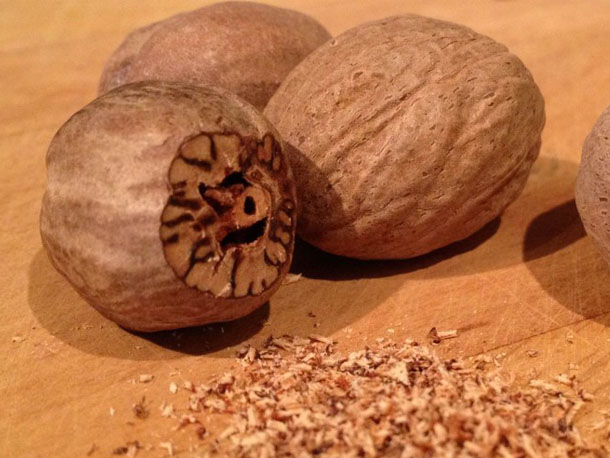Mace and nutmeg price slides seen as short term move

INDONESIAN mace and nutmeg prices are expected to remain prone to increases for the time being despite showing some downward movements in recent weeks.
One Rotterdam trader said the price dips were likely to be a reflection of a slight upturn in availability at origin as collectors gathered more mace and nutmeg last month, which had then been sold overseas by exporters. “There seems to be more interest to make sales,” he observed.
One UK trader remarked: “There have been one or two lower prices around in the market. I think that it is purely because people want to shift some stock. But I recently made some sales of mace and nutmeg and I was quite easily able to sell them quickly at the current levels.”
Both traders cautioned that it had to be borne in mind that there is a lot of variation in quality types and specifications, meaning that price declines in certain categories should not be taken as a universal trend across the sector as a whole.
The Rotterdam trader remarked: “The difference in price per parcel can be enormous and is it material that complies with EU legislation or is it parcels that may not have been tested, or whatever?”
He added that as seen so far this year, stocks in Europe remained extremely scarce, a situation compounded by the difficulties in finding material at origin that meets EU quality requirements. The main growing areas were deluged by heavy rain earlier this year, adding to the risks of aflatoxin mould developing.
These problems are compounded when collectors are not quick to retrieve any material that has fallen to the ground. The UK trader observed that most at origin were now well versed in collecting fallen mace and nutmeg as soon as possible.
The Rotterdam trader added: “Obviously Europe has become much larger in the last five years so the demand for EU-approved quality also has risen considerably. That is why nutmeg on the spot remains tight and pretty expensive.”
The Rotterdam trader viewed underlying demand as good and felt that the combination of this and limited supply of mace and nutmeg conforming to EU legislation meant that availability was still scarce even after a rise in crop flows at origin from the March to May period. He noted that for exporters sorting product for sale there were two distinct markets, these being EU-approved and non-EU material.
The UK trader was less positive about demand, considering it as relatively limited. “The end users are just coming into the market and buying from their regular suppliers as and when they need it. Prices are so high now that there is no interest from them to buy anything too far forward,” he remarked.
A second Dutch trader said he was expecting European stocks of Indonesian material to remain tight until the next main harvest in the country in October.
The Rotterdam trader added that he saw prices of EU grades maintaining value over the rest of this year.
In the meantime, Grenada remains out of the picture after Hurricane Ivan damaged much of its crop in 2004. “For they very limited quantities which they have, they are fully sold out until the end of this year,” the Rotterdam trader said.





